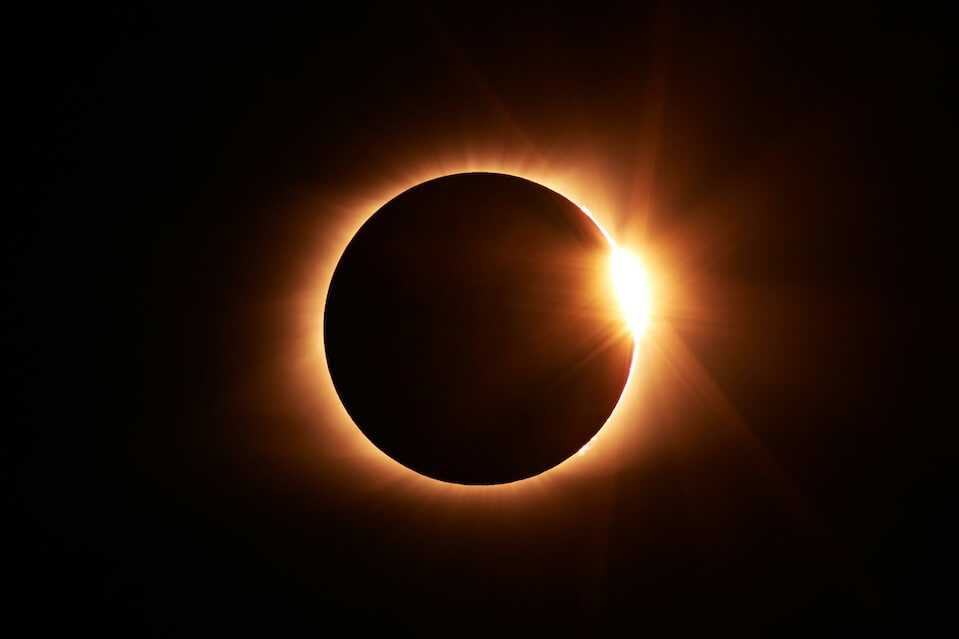Why the Eclipse is Triggering Religious Lawsuits in the United States
April 12th, 2024

Throughout time, countless religions have focused on sun worship. When you consider the qualities of our local star, this should not come as a major surprise. Known as “Sol” by astronomers, the sun is the brightest object in our sky. It is also an essential driver of life on Earth. Without it, humanity and all other living things would die. Crops dwindle in years with decreased solar activity. Even the earliest civilizations understood that when the sun shone bright, there was more to eat.
The ancient Egyptians worshipped the sun as the primary deity in their religion. The sun held similar religious importance among Meso-Americans, Indians, and Native Americans. Romans thought of the sun as a chariot drawn by horses across the sky, and sun worship also characterized the Cult of Mithra. This cult subsequently influenced modern Christianity. The rising of the sun also affects how Muslims pray, although Islam specifically teaches its followers not to worship our local star.
New York Prison Inmates Claim Lockdown Violates Their Religious Freedoms
On April 2, USA Today reported that a group of inmates at a New York prison was filing a religious lawsuit in a federal court. These religious individuals argued that they should be allowed to witness the upcoming eclipse despite a looming lockdown planned for the event. These religious individuals claim that there is no real reason for the correctional department to keep inmates from seeing the eclipse. In their lawsuit, they also point out that during the 2017 eclipse, their prison allowed all inmates to view the phenomenon without restrictions. Not only that, but correctional officers also distributed eclipse glasses freely among the population.
Perhaps most crucially, the inmates argue that this eclipse represents a violation of their religious freedoms. They claim that an eclipse is a “significant religious event,” citing its universal importance across numerous faiths. The lawsuit describes the fact that Muslims have a specific prayer reserved for eclipses. There is also a description of the eclipse’s importance for Christians and practitioners of Santeria. Even an atheist has joined the lawsuit alongside other inmates.
Is Viewing an Eclipse a Religious Right in the United States?
If this lawsuit proves successful, it could provide an interesting precedent – essentially making it a religious right for all Americans to view eclipses. However, this precedent would not be tested for many decades – as the next eclipse of this nature will occur in 2079.
Sun worship was once a defining feature of ancient religions, but the practice has fallen out of favor. No modern, mainstream religion worships the sun as its primary deity. While this type of lawsuit might have been successful in Ancient Egypt, its viability is much less reliable today.
Considering widespread religious influences and beliefs, however, the upcoming eclipse is an undeniably major event across numerous modern faiths. Many Christians believe that an eclipse is a “message from God.” Many other religions have similar teachings, suggesting that followers should witness this celestial event with careful sobriety. In other words, it is not altogether unthinkable for someone to file a religious lawsuit because of an upcoming eclipse. For a primer on religious views of the solar eclipse, please read our latest blog post “End Times: What Does Each Faith Say About Solar Eclipses?“
Success of the Lawsuit
It was announced only a few days later and with only a few days to spare that the inmates would get to view the eclipse after all. Representatives for the inmates stated: “We are pleased that, in response to our lawsuit alleging religious discrimination, New York State has entered into a binding settlement agreement that will allow our six clients to view the solar eclipse in accordance with their sincerely held religious beliefs,” they said in a statement. Such a speedy and positive resolution in this case is a testament to the profound nature of the solar eclipse.
Keep Informed with the Universal Life Church
Each month, various cases test the nature of religious rights in this country. While the basis for many religious rights is the United States Constitution, there are still countless cases that question the exact nature of these rights. The Universal Life Church’s blog is focused on documenting the most noteworthy of these cases in an objective manner that can be easily understood by readers.


